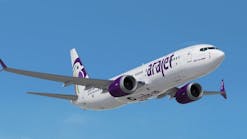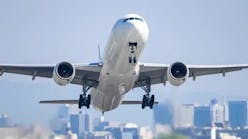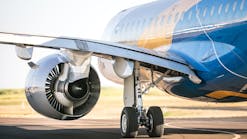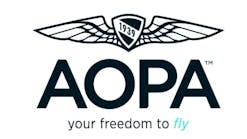Jim Cochran expected bad news when he got the big white envelope from Delta Air Lines. What he found inside was worse.
The retired Boeing 767 captain said he expected his $2,460-a-month pension to shrink by about 70 percent after Delta last summer won bankruptcy court approval to terminate its pilot pension plan.
His benefit had already dropped by more than $3,000 when Delta cut part of the program after flying into Chapter 11 a little more than a year ago.
But Cochran saw two things when he opened the envelope. One was a letter from Delta telling him that, as of Oct. 1, his benefit was zero.
The other: coupons to begin paying Delta $907 a month for his family's health insurance, since he no longer had a pension check from which to deduct it.
"This is absurd," said Cochran, 59, who worked for Delta almost 27 years. "I get nothing, and I still owe them $907."
Delta says about 1,300 retired pilots had their monthly pension checks zeroed out by the pilot pension plan termination.
The reason is more complex than the company's simple need to cut retiree costs. It lies in the arcane rules of pension termination --- and in a lucrative feature of Delta's pre-bankruptcy pilot contracts.
Delta says pilots who got zeroed out already took a major portion of their pension benefits when they left the airline. Unlike most employees, retiring Delta pilots until 2005 could cash out half their pension benefits in lump sums that sometimes topped $1 million. Hundreds retired early to take advantage of the clause before it was stopped after Delta's Chapter 11 filing.
If the annualized value of the lump sum exceeds the federal Pension Benefit Guaranty Corp.'s caps on how much a retiree can still collect from the federal insurance agency after a plan is terminated, a retiree gets no more monthly checks.
"These pension checks are only the remaining portion of their benefit after they took the lump sum," said Rob Kight, Delta's vice president in charge of employee benefits and related matters.
Kight said that while about 1,300 ex-pilots' monthly pension checks were wiped out, a slightly larger number of the carrier's oldest pilot retirees saw no reduction. For an additional 3,000-plus in between, pension cuts range from a few percent to almost 100 percent.
Delta recently estimated that retired pilots' average benefit will still be $75,200 on an annualized basis after the termination --- a figure that assumes self-disciplined drawdowns from their lump sums. Cochran, for instance, hopes to soon begin tapping a $1.2 million lump sum that he got when he retired almost three years ago and put into an IRA account.
But the number of pilots who got zeroed out was larger than many expected, and the requirement to pay Delta for health benefits makes the pill even more bitter.
Wendell Lewis, another retired Delta pilot whose monthly pension checks stopped, is part of a group headed by a former pilots union chairman that is appealing U.S. Bankruptcy Judge Adlai Hardin's approval of the plan termination.
"Delta's making enough money to keep the plan," said Lewis. He said Delta has broken its promises to him while maintaining the pension plans of most other employees and retirees.
Indeed, Delta has said it intends to keep a larger pension plan for nonpilot employees. Congress last summer enacted a law giving the airline 17 years --- 10 years more than most companies --- to bring its plans to full funding. But Delta moved to terminate the pilot plan anyway, and its pilots union had agreed not to object as part of a new contract deal.
"The management didn't take any hits on their pensions. The other employees didn't either. The active pilots negotiated a new pension plan for themselves," said Lewis, 58, who lives in Duluth. "The only ones that are getting their pensions dumped are the retired pilots."
Will Buergey, the former union chairman who is appealing termination, believes most retirees' incomes will be much lower than Delta's estimates.
"My income is substantially lower than $50,000 now," said Buergey, 58, who made more than $300,000 a year before he retired in 2004, just before the first of two deep pay cuts.
Delta says it had to shed the pilots' pension plan to be able to get financing for its planned emergence from bankruptcy next year. Shedding the plan and letting the PBGC take over limited payouts enables Delta to avoid about $2.5 billion in payments needed to bring that plan to full funding.
"Termination of the pension plan is among the most difficult decisions Delta has had to make in connection with our restructuring process, and we truly regret the impact this has had on you," Delta said in a letter late last month to almost 6,000 retired pilots.
The PBGC caps payouts at $31,000 or less per year for people who retired at 60, the mandatory retirement age for airline pilots. Delta is the third major airline to dump all or part of its pension obligations as part of a recent Chapter 11 reorganization, after US Airways and United.
But Northwest Airlines, which filed for Chapter 11 protection on the same day as Delta, has not moved to shed its employees' pensions.
The PBGC hasn't yet taken over Delta's pilot plan, but the airline was required to recalibrate payouts as if it had.
Delta angered some retirees by warning that it could take the PBGC "several years" to review the airline's estimates, and to send any questions to the airline in writing.
"Due to the complexity of the calculations, the Employee Service Center will not be staffed to answer questions regarding these calculations," Delta's letter stated.
Cochran hoped to have enough of a monthly benefit left to cover his family's health insurance premiums. He said he's worried about insurance in the future, because his 57-year-old wife, Susan, has diabetes. Adding to the pain of the pension cuts, Delta last week reached agreements with court-appointed retiree creditor groups that will significantly boost almost all retirees' health insurance premiums, pilot and nonpilot alike.
"I can't go [to a new insurer] because of Susan being a Type 1 diabetic. They won't take her," said Cochran.
Still, he is philosophical about Delta's pension-cutting moves. "It will certainly make my income tax a lot easier to figure," he joked. He said he long thought the pension plan termination was inevitable.
"I don't blame Delta. They're trying to survive," he said. "I just knew this was going to be a dead-end battle, which is why I retired."
Cochran said he flew extra trips before retiring, boosting his income to $240,000 a year. The couple paid off their house and cars, and his wife later went back to work.
He said their expenses are less than $10,000 a year now, and they banked nearly $1.7 million when he retired two years ago, including savings from his Delta wages and the $1.2 million pension lump sum.
"I plan to live conservatively and keep our costs down and wait for the dust to settle," he said.
Lewis also retired four years earlier than he had planned, in order to save his lump sum pension benefit, also $1.2 million.
At that time, in late 2004, Delta had just averted a bankruptcy filing, and waves of pilots were retiring. He didn't believe the carrier's pension plan could long continue to pay out lump sums.
"It was just too big a risk," said Lewis. "I felt like I had to do it for my family, even though I wanted to stay and fly."
As he suspected, several months later, the pension plan halted paying out lump sums. More than 2,300 pilots had retired since 2003, draining plan assets.
Lewis initially got a $6,500-a-month pension to support himself, his wife and daughter while he launched a boat appraisal business. But Delta moved quickly to cut pension expenses, winning court approval to stop paying the portion of retired pilots' and executives' pensions that exceeded federal income limits on traditional pensions.
That move caused Lewis' pension checks to drop to $1,700 a month, he said.
Now that income is gone, too, as a result of the pension plan termination. Lewis said his incoming cash will now be about $24,000 a year from the proceeds of a home refinancing and other savings. He's too young to draw Social Security, and he had put the lump sum into an IRA that can't be reached without penalties for another year and a half.
"We kind of expected that the benefit would go to zero, but it's a shock when that letter shows up," said Lewis. "It's going to be tight living off of no income for a year and a half." In the meantime, he and his wife are considering going back to work or selling their house.
"We'll survive somehow. It's just not going to be as much fun as I thought it would be," he said.
Copyright 2005 LexisNexis, a division of Reed Elsevier Inc. All rights reserved.
Terms and Conditions | Privacy Policy
News stories provided by third parties are not edited by "Site Publication" staff. For suggestions and comments, please click the Contact link at the bottom of this page.





